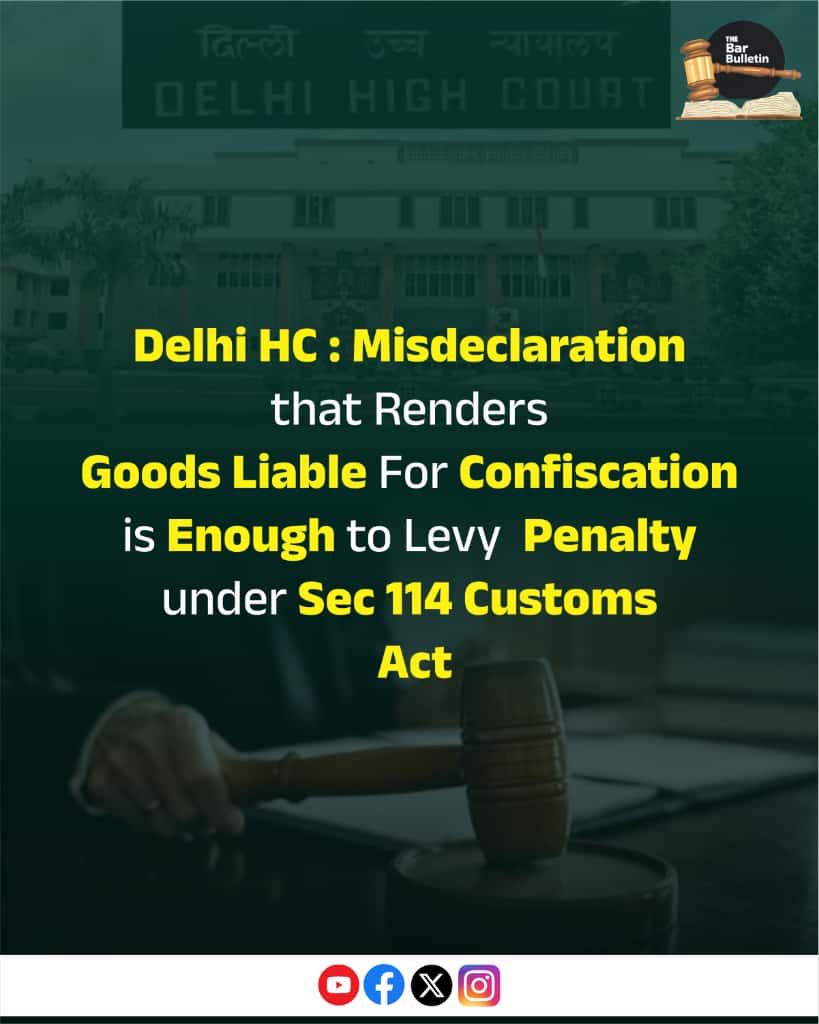The Delhi High Court recently clarified that no intent need be established for imposing a penalty under Section 114 of the Customs Act, 1962, and an act of mis-declaration that rendered goods liable for confiscation would suffice. The Court therefore concluded that the penalty of Rs. 10 lakhs imposed on the Appellant was appropriate, given his role in the transaction.
The Court referred to the factual findings of the CESTAT that the name of the consignor/ consignee and the description of the goods in the airway bill and the baggage declaration were different, and the name of the consignor and consignee and the description of the goods in the airway bill were changed to match the description in the baggage declaration.
The Court therefore pointed out that without misdeclarations in both the baggage and the airway bill, and without the airway bill being filed by the Appellant in the name of a fictitious company, the entire fraud would not have been possible.
The Division Bench comprising Justice Prathiba M Singh and Justice Shail Jain therefore observed that the Appellant-exporter had played a crucial role in fraudulent export by filing airway bills under a fictitious name, to enable the processing of the illegal activity. Since the requirements as per Section 130 of the Customs Act were not fulfilled, the Bench affirmed the penalty.
Briefly, in this case involving the illegal export of Red Sanders, exports made by the Appellant were found to be accompanied by mis-declared baggage documents and forged airway bills. The consignment, which contained Red Sanders, was falsely declared as ‘household goods’ and exported under a fictitious company name. Finding that the Appellant was involved in filing the airway bills, facilitating the fraudulent export, he was penalized by the Adjudicating Authority, and the CESTAT upheld the penalty of Rs. 10 lakhs imposed on the Appellant.
Appearances:
Advocate Navneet Panwar, for the Appellant/ Taxpayer
Advocate Satish Aggarwala, for the Respondent/ Revenue

